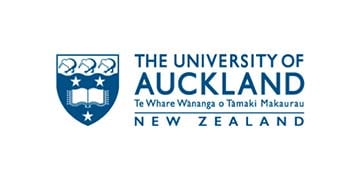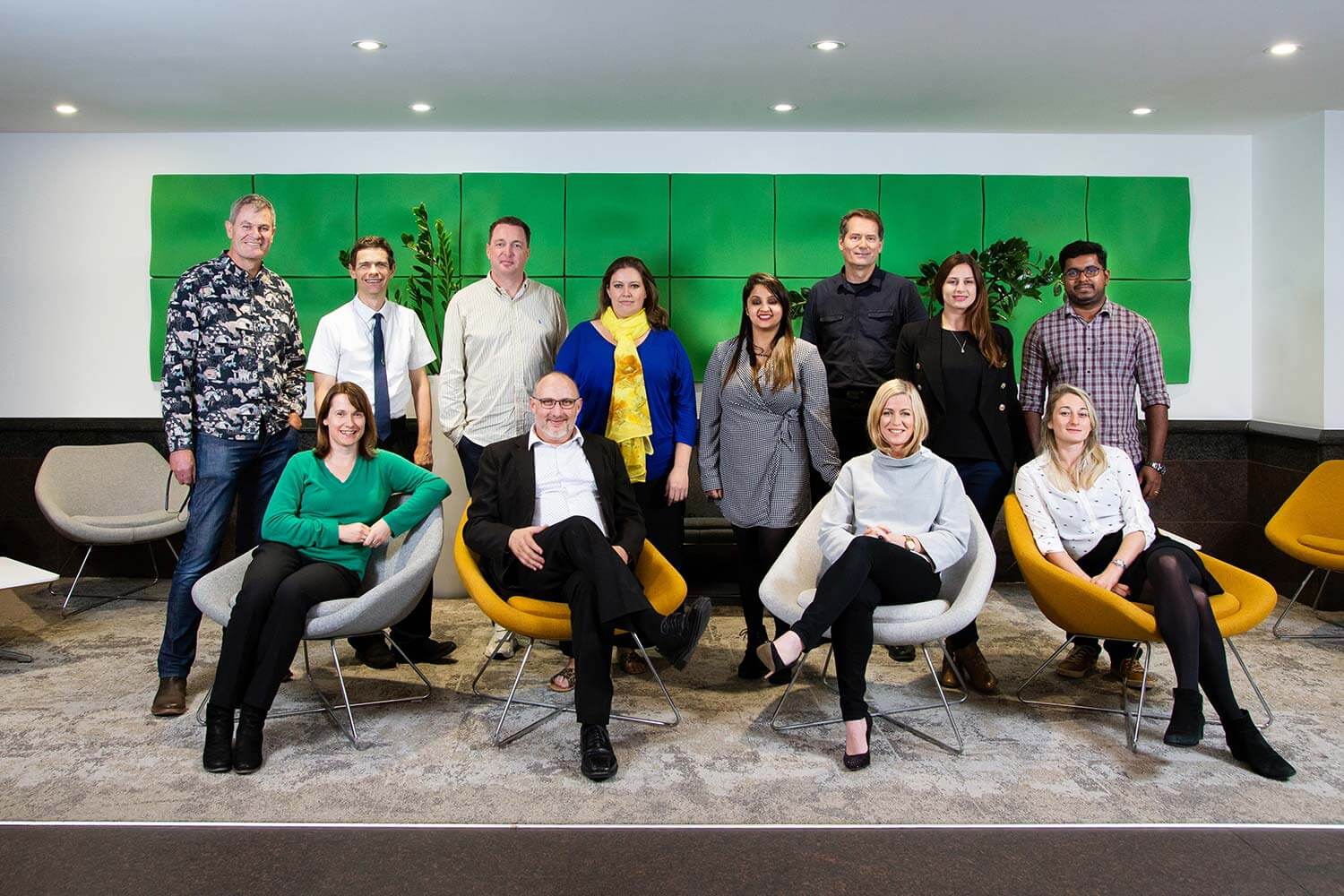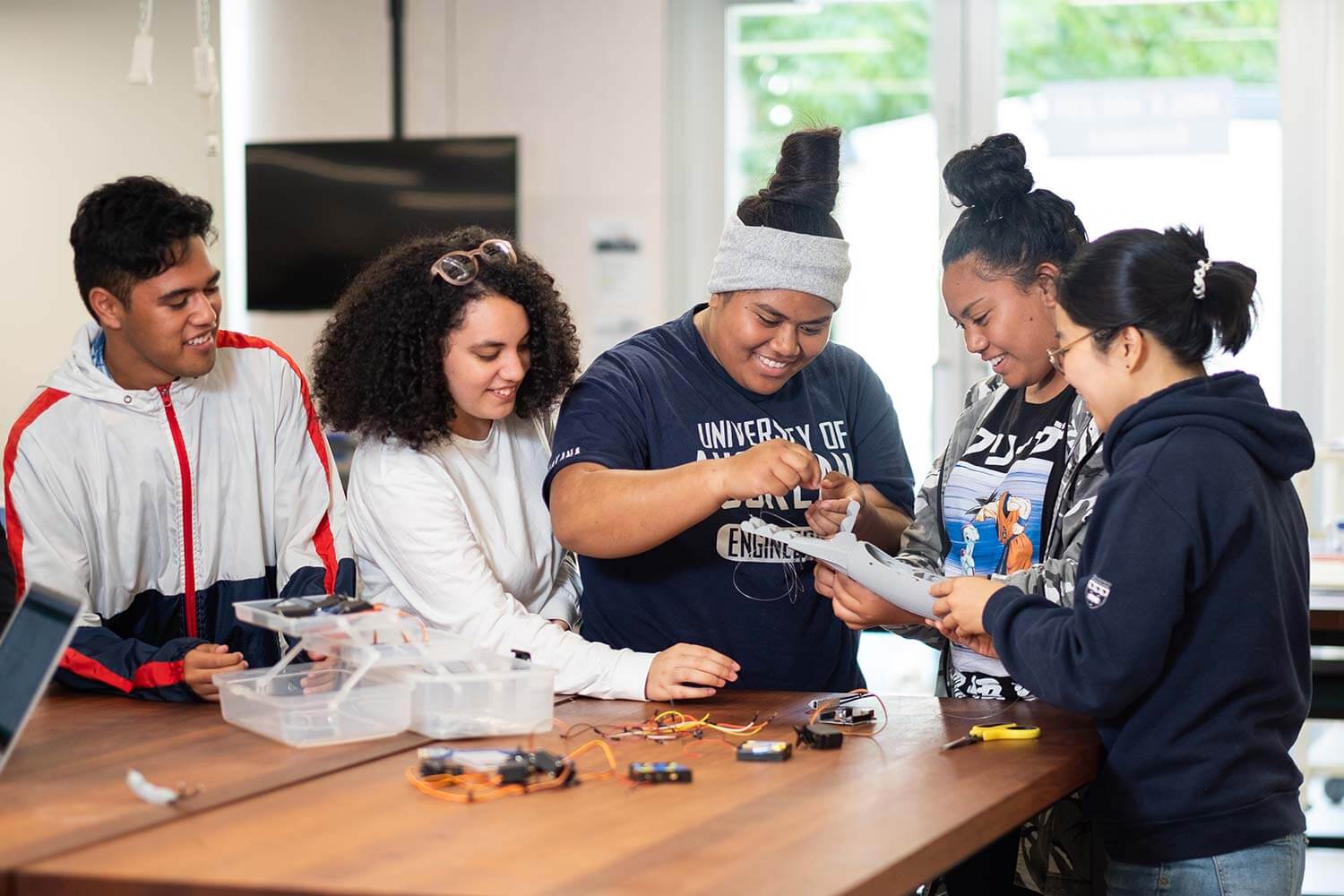
Client:University of Auckland
Industry:Public Sector
Region:Asia Pacific & Japan
RPA Becomes a Driver Toward a Positive Future for University of Auckland Staff and Students

23K hours
saved annually
96.2%
success rate for orchestration runs across all processes
99%
success rate across all processed requests for automated processes in Finance
98%
client satisfaction rate for automation in Finance
Client Overview
The University of Auckland offers services for more than 40,000 students, supported by 5,500 staff members.
What started out as a cost-saving initiative for the University of Auckland grew into a full-fledged educational course thanks to UiPath.
Robotic process automation (RPA) enabled the university to improve the experience for students, and also eliminated time-consuming tasks for staff members, providing them more time to focus on human-oriented services.
Staff members at the University of Auckland were in a favorable position to notice demand changes for business process management and automation. As one of the top universities in the world, the institution offers services for more than 40,000 students, supported by 5,500 staff members. This includes Izak van Niekerk, leader of the university’s automation practice, as well as Matt Poole, the university’s Strategic Program Manager.
Two years ago, van Niekerk and Poole were tasked with putting the university on the path toward RPA. What began as a cost-cutting initiative soon grew into something much more, thanks to van Niekerk and Poole’s insights surrounding the heightened demand for RPA education.
One of [the team’s] observations was that the demand for RPA is taking off. We’re really good at it. Why don’t we teach and research it?
Matt Poole • Strategic Program Manager at University of Auckland
The university’s multi-faceted RPA initiative started with the automation of certain internal processes, through the help of UiPath and PwC, including workflow automation and data digitization. From there, Van Niekerk and Poole were able to champion an academic course around RPA, which the university will begin delivering July 2019.

The university is also partnering with UiPath and Accelerating Aotearoa to launch an Automation Youth course for 10-14 year olds which also begins in July. “This is all about readying our youth for tomorrow’s work, especially our disadvantaged youth. It is one of those wonderful moments when people from a world away connect, find they share the same values, and say 'Let’s do this great thing!'”
RPA enables Auckland University to boost process maturity
To begin its initiative, university stakeholders including Van Niekerk and Poole had to identify the processes that would lend themselves well to automation, where it could then deploy UiPath robots.
However, this investigation showed that many of the university’s current working processes were at low levels of maturity, and some were not well documented with the visual process maps or operating procedures required. While this discovery expanded the overall delivery time frame for the automation project, it provided the opportunity for staff to revisit, redesign, and improve their existing processes ahead of introducing the RPA software bots.
“We had to redesign and improve the actual process, in terms of how the activity was performed, as well as the associated business rules that were underlying those activities,” van Niekerk said.
There’s always been an effort to improve the process up front and then automate.
Izak van Niekerk • Business Transformation Architect and Automation Practice Leader at University of Auckland
The team then worked to introduce RPA into the processes that stakeholders had identified and improved. This included workloads related to the student transcript request process, the finance team’s supply setup process, and purchase order setup process. During the rollout of the software robots and newly automated activities, van Niekerk and Poole worked closely with staff members to answer questions and quell concerns about their changing roles and responsibilities. The result was the creation of the university’s center of excellence (COE), which encompasses a variety of resources and knowledge from experts in process, solutions design, business analysis, change management, development, quality assurance testing, and more.
RPA grows from a service improver to an academic option for students
After enhancing its back-end process procedures and associated documentation, the university deployed four unattended software robots to enable the automation of key processes. The first workload chosen involved the student transcript process request, where the university gathers students’ previous institution transcripts, course participating details, and recommendation letters.
From here, the university looked to automate its supply setup process, which involved the oversight of as many as five different types of suppliers into two automated processes. The overall turnaround time was reduced from 12 days to between two and four days.
Other key processes were also identified and automated, including the university’s compliance checks, purchase order system, and new supplier requests.
With its internal automation initiative providing cost savings and efficiency improvements, University of Auckland staff decided to take RPA to a student-facing level. After noticing heightened demands for education around RPA, the university set out to create its own, first-of-its-kind RPA course. And this was yet another area wherein the university’s partnership with UiPath proved beneficial.

At one point, it looked like we were going to have to build out our own contents [for the course], which we were all set up to do. But then, UiPath came along with Academic Alliance, and gave us a fast start, which was terrific.
Matt Poole • Strategic Program Manager at University of Auckland
“So now we have UiPath’s expertise, the university’s local experience, and PwC’s commercial insight all combined into a fantastic course for our students,” Poole said.
The result: staff members champion the use of RPA
Despite initial concerns about using software robots to support automation, staff members quickly took to the new processes and realized the benefits of RPA. For instance, one of the first processes to be automated involved the university’s supply process, which would previously involve manual checks against external sources by procurement staff members to ensure that no conflicts of interest exist.
Van Niekerk noted that once this supply check process was automated, stakeholders and team members discovered that the software robot actually identified certain special conflicts of interest that would likely have been overlooked by human staff members.
Automation of internal university work also allowed staff members responsible for student service to have more time to focus on providing a beneficial experience to the university’s pupils.
“[Staff] were just continually being hammered by dissatisfied customers, bad stories, and always in catch-up mode, not really able to do a satisfying job themselves,” Poole said. “Suddenly they were getting respect from their customers and their peers for the job they’d done and for turning things around. It was a really powerful story about how those who you might think would be worried and concerned, could actually become the biggest advocates really quickly.”
What’s next?
Poole, van Niekerk, and other university staff are looking forward to launching Auckland’s RPA course in July 2019.
The university is also exploring expansion opportunities for intelligent automation including incorporating Amazon Web Services' SageMaker intelligent machine learning algorithms to help route emails. In this way, when the Staff Service Center receives a request, it can quickly and automatically be routed to the correct agents, as opposed to requiring up to four hours for a human to sort through the messages and manually forward them. This process has just gone live, and has seen 96% accuracy so far.

This type of deployment, involving RPA and machine learning, will be a trend for the university’s future automation initiatives. Pool and van Niekerk discussed possibilities with chatbots, virtual assistants, and predictive analytics.
Poole and van Niekerk also underscored the importance of bringing the benefits of RPA outside of the university and to the larger community. In July 2019, they piloted a course teaching RPA to school children in South Auckland.
“We see the benefits of RPA as an organization,” van Niekerk said. “I think more importantly it's an external impact and how we want to deliver back to our communities and our stakeholders. I think the ethos of the university is really around how do we share knowledge. How do we, more importantly, share the knowledge to make New Zealand a better place.”
Related case studies
Ready for your own case study?
Speak to our team of knowledgeable experts and learn how you can benefit from agentic automation.





